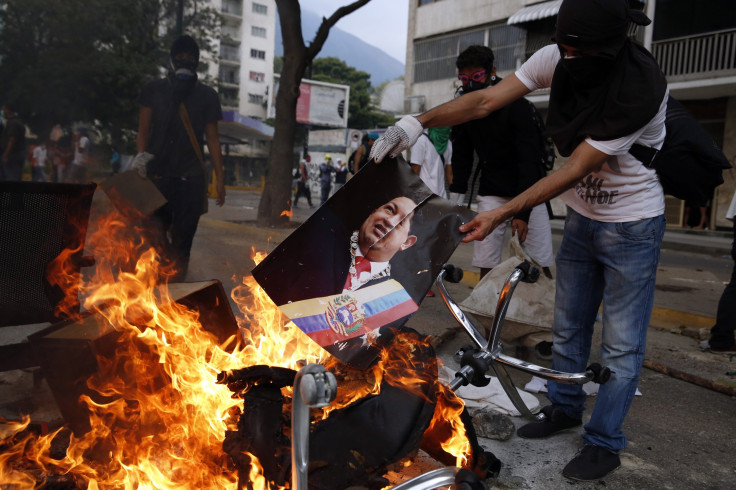
As protests in Venezuela intensify, anger amongst the country's protesters has turned increasingly towards their Caribbean communist counterpart. The New York Times is reporting that Venezuelans are becoming increasingly resentful of the influence Cuba has had on the country's economy and politics. "You can’t see it very much, but you can feel it a lot,” Carlos Rasquin, 60, told the newspaper. "Everyone knows that the Cubans control military intelligence, police intelligence,” he added.
Links between Cuba and Venezuela have been steadily increasing ever since Hugo Chavez first took office in 1999. Chavez often described Fidel Castro as his "mentor" and citing the Caribbean country as a "a revolutionary democracy." Yet increasingly the Cuban influence has been seen as extending far beyond the ideological. When María Corino Machado was accused of treason last week, she intimated Cuba's involvement: “It’s clear to me that it was the Castro brothers who gave the order” for the actions against her.
Cuban-Venezuelan relations are cemented by a powerful economic deal between the two countries. The oil-rich Venezuela ships about $4 billion worth of crude oil to Cuba each year in return for Cuban doctors, dentists and technicians. Yet the influence can go both ways: according to the Times, protests in Venezuela have "energized members of Cuba’s fragmented and heavily monitored opposition." Orlando Luis Pardo Lazo, a Cuban opposition blogger intimates that “The fate of Castro-ism may be at play in Venezuela.”
In the United States, the place of Cuba has helped to polarize relations between the two countries. Both Chavez and Maduro often hold American presidents up as "devils" while simultaneously placing Castro's government on a pedestal, while Donald Rumsfeld referred to both countries as the "troublemakers" in the region. More recently, Cuban-American Senator Marco Rubio, who fiercely defends America's embargo of Cuba, has thrown his support behind legislation to increase sanctions on Venezuela.
However, while Cuba manages to exert both ideological and practical influence on its South American cousin, the problems within the troubled country lie within the administration itself. Tempting as it might be to find an easy scapegoat such as Cuba, it starts to suddenly resemble a similar attitude in Maduro's finger-pointing. The world's attention must turn squarely to Venezuela's government and the abuses of free speech and human rights the country is currently undergoing, independent of any Caribbean influence.
© 2025 Latin Times. All rights reserved. Do not reproduce without permission.




